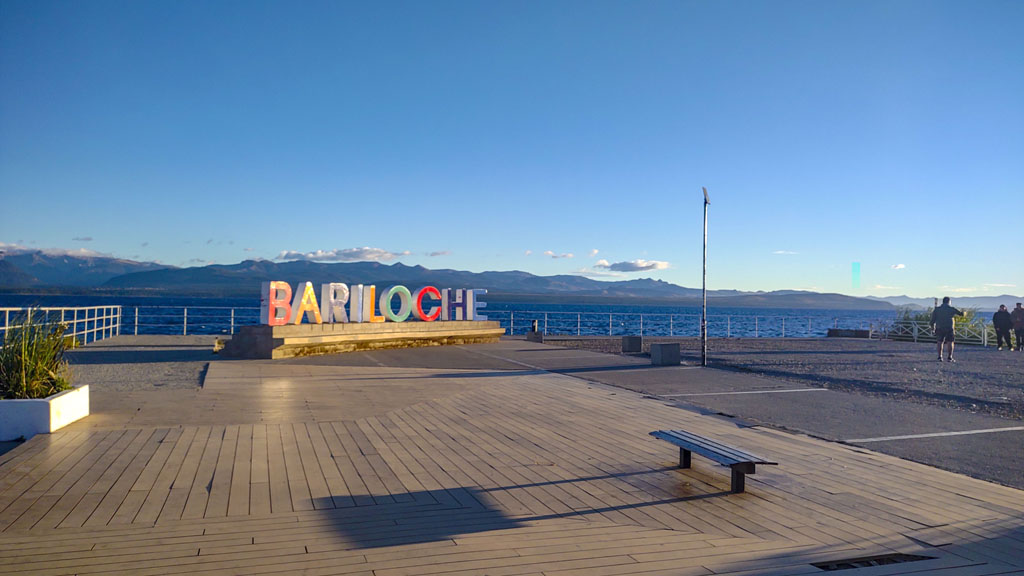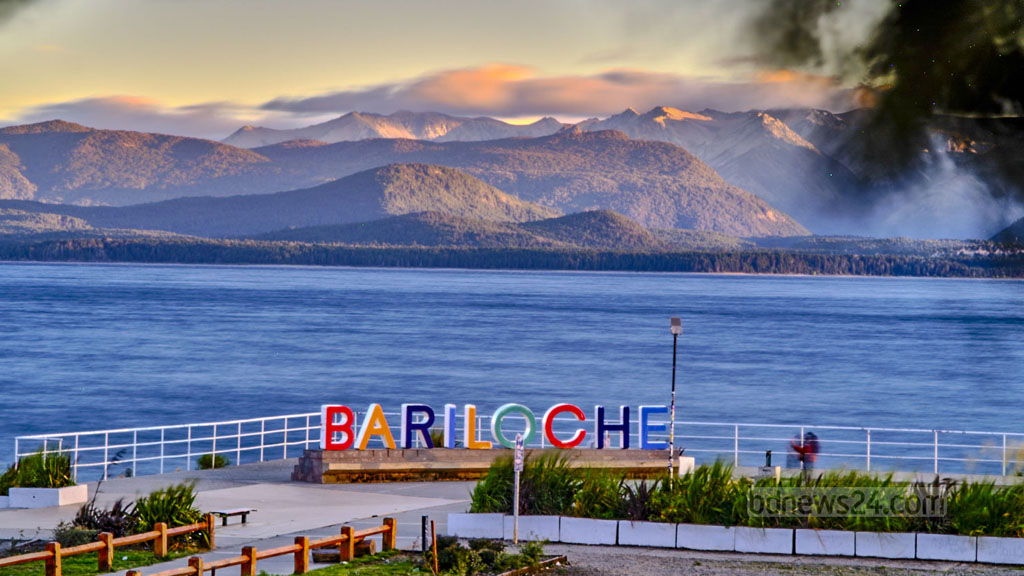Home
+
Far from the cheering echoes of stadium crowds, the stark, resilient beauty of Patagonian seems to swallow all noise, says Muntasir Mamun

Published : 16 Apr 2025, 04:43 PM
Ask any Bangladeshi about Argentina, and the conversation will likely erupt into a passionate debate about Maradona’s divine hand or Messi’s magical feet. Football, tango, the vibrant architecture of Buenos Aires – these are the images that dance in our collective imagination. But my journey, a solitary pedal through the vast, windswept plains of Patagonia, unveiled a different Argentina, a hushed landscape that resonated with a quiet familiarity deep within my Bangladeshi soul.

I’d set off, truth be told, half-expecting a country where the echoes of stadium cheers vibrated through the very air. Instead, Patagonia swallowed the noise. This sprawling region, a dramatic tapestry of southern Argentina and Chile, hummed with a profound silence. The majestic Andes Mountains, their snow-capped peaks piercing the endless sky, stood like stoic, watchful guardians. Before me, straight, empty roads unspooled into the horizon, flanked by stark, rocky deserts that stretched further than my Dhaka-accustomed eyes could comprehend. There were no roaring crowds, no triumphant goals – just the persistent flutter of the little Bangladeshi flag attached to my bicycle, a stubborn, comforting reminder of the green and gold of home.

San Carlos de Bariloche, a charming mountain town that felt plucked straight from a Swiss postcard, was a deceptive gateway. Nestled amidst the towering Andes and fringed by glacial lakes of an impossible blue, it’s often dubbed Argentina’s “Little Switzerland.” Here, picture-perfect cabins dotted the hillsides, and tourists bustle, eager for a taste of skiing or the rich local chocolate. My bicycling journey begun here with my Argentinian friend Tadeo and ended at the provincial capital of Rio Negro, Viedma, the eastern side of Argentina. But pedal further, venture deeper into Patagonia’s embrace, and the scenery undergoes a stark transformation. The lush greenery surrenders to bone-dry plains that suddenly give way to unexpected stretches of windswept grasslands. And the wind – ah, the wind! It became my constant companion, pushing, pulling, and persisting with the relentless energy of a Kalboishakhi storm back home, testing my resolve with every gust.

At times, the sheer solitude was almost a tangible presence, a heavy blanket of quiet that settled around me. Days would drift by without the sight of another human being, only the curious gaze of farmed cows or sheep – and the occasional rumbling truck whose driver might offer a brief wave before disappearing into the vast emptiness. In those moments, the only voice I heard was the whisper of the wind and the rhythmic whir of my bicycle wheels.
I had tied the Bangladeshi flag to the back of my bicycle. I thought someone might stop and ask, “Where is that flag from?” But nothing like that happened. A few bikers, some truck drivers did glance at me, some even waved. The only car that actually stopped to talk belonged to a Canadian tourist. And at that moment, I was reminded—back in 2014, I had crossed Canada myself on a tandem bicycle. In that instant, it became clear—same flag, two continents, two very different reactions.

In the remote, sparsely populated villages, where finding lodging felt like a minor miracle, the inherent kindness of the Argentine people shone through. In Clemente Onelli, where guesthouses were nonexistent, the local school opened its doors to me. Fifteen pairs of wide, curious eyes absorbed my hesitant tales of Bangladesh’s mighty rivers and the how to count 1 to 10 in Bangla. In the back of the room, a tattooed Indigenous man, a quiet testament to Argentina’s often-overlooked multiculturalism, nodded slowly, his gaze filled with a quiet understanding that transcended words.

Argentine kindness, I discovered, possesses a quiet humility, a gentle echo of our own deeply ingrained “Atithi” is our close relative – the belief that a guest is akin to a god. When a bus driver, bound by regulations, reluctantly refused to take my bike, Claudia, Celso and their friend Christina - complete strangers - spontaneously offered their help. They carefully loaded my trusty steed into their car, drove out of their way, and as they bid me farewell, they pressed a small Argentine flag into my hand. “For your next adventure,” they said, their smiles genuine and warm.
Patagonia’s beauty is not the lush, vibrant green of our Bengal delta; it’s a stark, resilient beauty forged in harshness. Days often meant battling blinding dust storms that swirled like desert demons, enduring icy winds that bit at exposed skin, and facing a sun so fierce it felt like the relentless heat of a Dhaka summer. Unlike home, where a comforting tea stall appears every half-kilometre, survival here demanded meticulous planning, careful rationing of precious water, and a constant, fervent prayer for the fleeting shade of a lonely outcrop.

Yet, this raw, untamed emptiness also cultivated a profound sense of resilience within me. The starkness of the landscape mirrored a quiet strength in the people who called this land home. Villages like Comallo, where century-old steam trains still chug along weathered tracks, felt like stepping onto a film set, history breathing in the present moment, a testament to enduring spirit.
In Viedma, a town holding a small piece of Bangladeshi sporting history – it’s where our national football team captain, Jamal Bhuiyan, once played – I harbored a secret hope for a familiar taste of home, a connection to my roots. Instead, I found quiet, unassuming streets. But even in this apparent lack of familiarity, I sensed subtle signs of a growing connection. Argentina had reopened its embassy in Dhaka in 2023, a quiet nod to burgeoning ties between our distant nations. On social media, I saw the digital bridge being built, Bangladeshis now passionately debating the merits of Messi versus Maradona, while Argentine fans, intrigued by this faraway land, were discovering the rich flavors of our tehari and the fervent passion of our cricket craze.

So, to my fellow Bangladeshi wanderers, those with a restless spirit and a yearning to explore beyond the familiar: Argentina is not Europe with its easily navigable tourist trails but indeed you will find eurocentrism. Its hospitality is often understated, its landscapes can be unforgiving, demanding respect and resilience. But beneath the rugged exterior, its heart beats with the same quiet courage I see in our farmers toiling in the fields or the stoic nouka sailors navigating our mighty rivers. Carry the warmth of our Bangladeshi spirit with you; you will find it echoed, softly, in the vast shadows of the Andes, in the unexpected kindness of strangers, in the shared human experience of navigating a challenging world.

As I pedaled past Patagonia’s seemingly endless horizons, the wind at my back and the setting sun painting the sky in fiery hues, I realized that borders, those lines drawn on maps, begin to fade when curiosity takes the lead. After all, isn’t that the very spirit of Bangladesh too? A land that, with a simple invitation for a cup of cha, has the remarkable ability to turn strangers into family. And in the silent grandeur of Patagonia, I found a distant echo of that very same human connection, a quiet kinship forged in solitude and the shared language of the open road.
Adios Argentina!